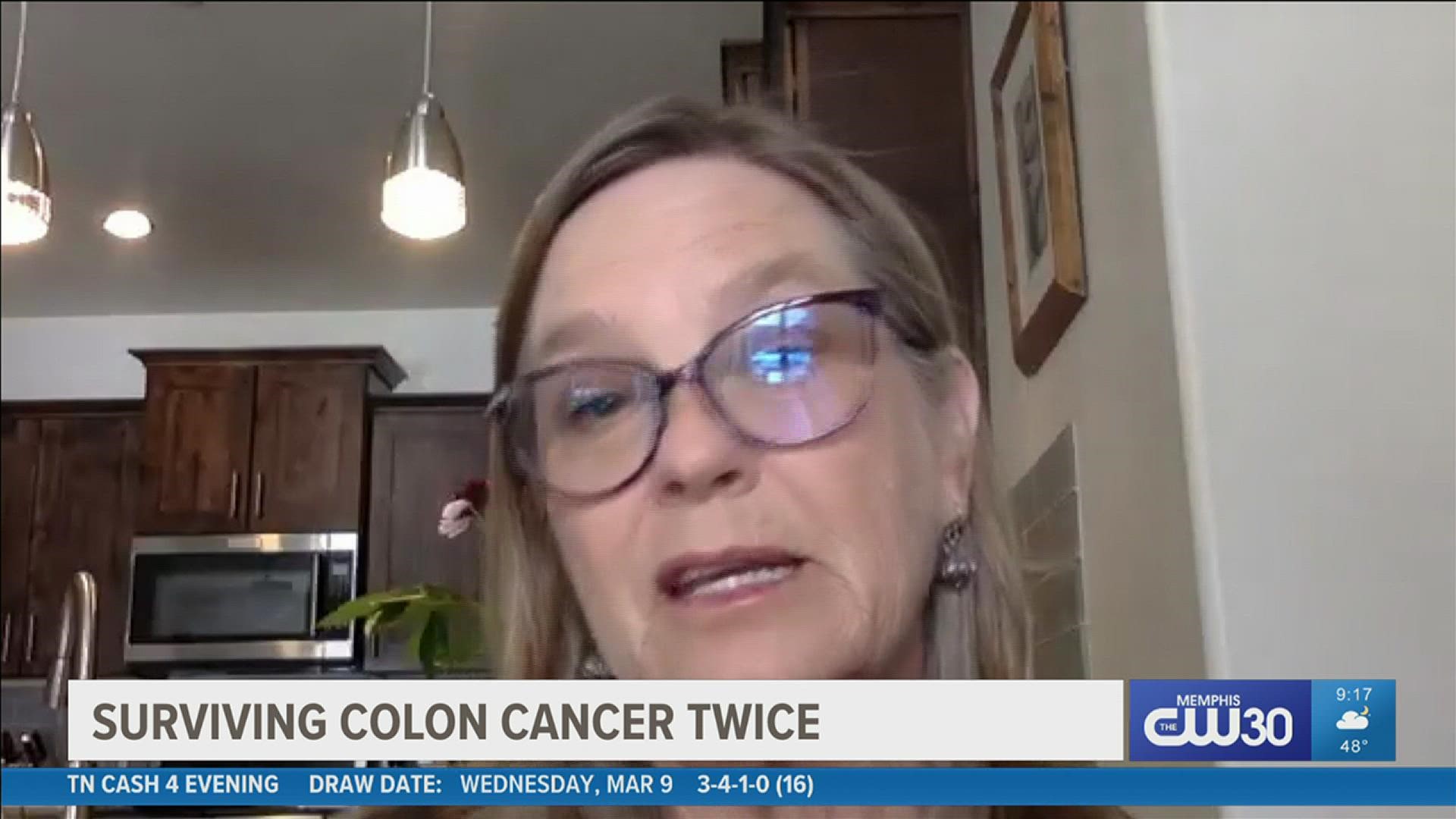MEMPHIS, Tenn. — In recognition of Colon Cancer Awareness Month, we spoke with a two-time colon cancer survivor from Mississippi about the challenges she encountered when she was diagnosed.
Colorectal cancer is the third-leading cause of cancer-related deaths in men and women in the U.S.
Nesbit resident Madeliene Payton was 53 when she was first diagnosed with stage 3B colon cancer in 2010. She went through surgery and chemotherapy and said she lived a healthy life for about two years. Then, it came back, moving her to stage 4.
Dr. Steve Otieno, an oncologist at Methodist LeBonehur, said overall, incidents of colon cancer have been decreasing. However, there's one subgroup where the rates have been increasing.
"That's in those who are younger than 60 years old. There's been an increase, particularly in people around 50 years old or so," he said.
He said the gold standard for diagnosing colon cancer is a colonoscopy.
Colonoscopies should be done starting at 45 years old and every 10 years. If a concerning growth is found, it can be removed early. Colonoscopies can offer great chances of a cure before growths become cancer.
"If we find a small cancer, then the patient can go to a surgeon and this cancer can be cut out. Usually, these patients do not need any other therapy in the early stages of the cancer, and most patients are able to live the duration of their life without any other significant burden," Dr. Otieno said.
Payton has made it her mission to share her experience with colon cancer.
"If you see any hint of something going on (blood in your stool, bloating, a little bit of cramping), it's OK. Go get checked," she said. "It's better to be safe than sorry and not everybody gets to tell their story like I do."
Some of the symptoms of colon cancer include blood in your stool, changes in stool color, severe fatigue and weight loss, anemia and abdominal pain.
Risk factors include obesity, a diet that is mainly red meats and low in fiber and smoking tobacco.
Dr. Otieno and Payton hope their words encourage others to get screened in March.
"If we screen more under the age of 50, we'll be able to catch some of these early cases and hopefully give the patient a chance at a cure," Dr. Otieno said.
"If I can have one person go get a colonoscopy a year, I feel like I've accomplished something," Payton added.

